JUST what we need, more chances to be killed by a "cop". Maybe mpd outgoing chief cathy lynn lanier has spoken out against the "special" private police forces operating in D.C. but I doubt it. Maybe the mainstream media in D.C. has reported on these "special" police forces but I doubt it. Maybe the D.C. government, the mpd, chief lanier and the rich and powerful like having these "special" police forces to hide behind, allowing them to get away with being bad cops while D.C. touts the fact that the District hasn't been rocked by the scandals of illegal, racist behaviour. Here is an eye opening article from +ThinkProgress on the private police forces operating in Washington, D.C.
The Mysterious Private Police Force That’s Killing People In The Nation’s Capital
Carimah Townes
Criminal justice reporter at ThinkProgress. Contact me:ctownes@thinkprogress.org
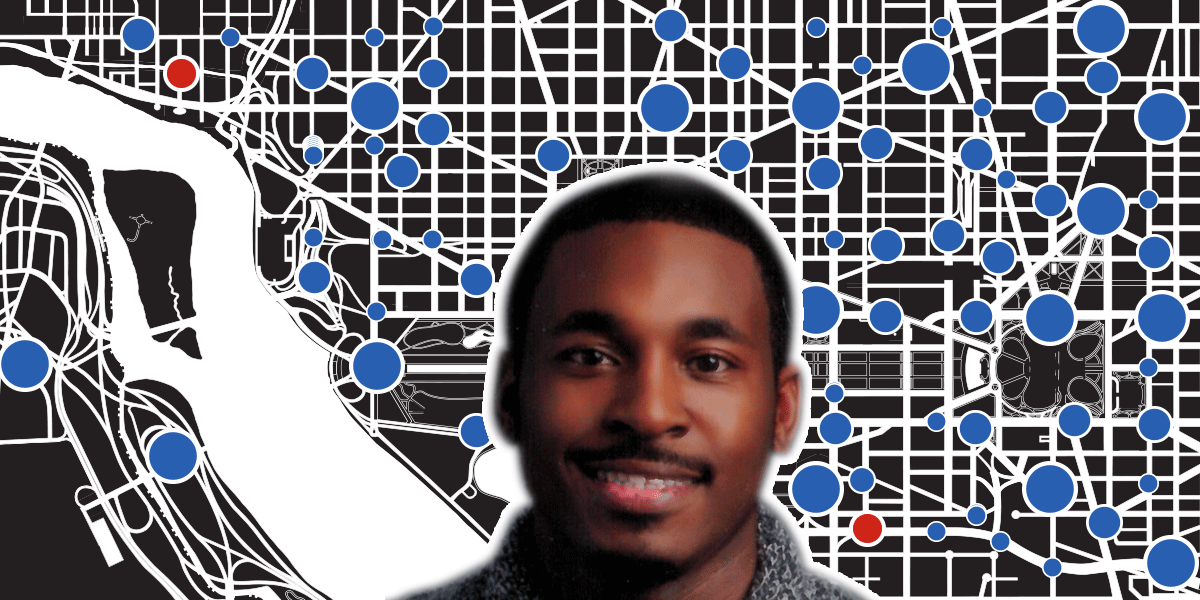
 The last time Beverly Smith had a full conversation with her son, Alonzo, was October 30, 2015. It was a Friday, and even though the weekend had just begun, he was thrilled about the upcoming week. The 27-year-old, who worked with special needs students, had booked several gigs as a part-time portrait model.
The last time Beverly Smith had a full conversation with her son, Alonzo, was October 30, 2015. It was a Friday, and even though the weekend had just begun, he was thrilled about the upcoming week. The 27-year-old, who worked with special needs students, had booked several gigs as a part-time portrait model.
When she received the news, Beverly couldn’t have known it would be the last time she’d share a joyful moment with her youngest child.
Early the next day, she sent Alonzo a standard text message about his plans for the weekend, and he responded as usual. But when she sent a second message later that night, she didn’t receive a reply. The following day, she shot off two more texts — both of which went unanswered. That’s when she knew something wasn’t right.
Beverly frantically called Alonzo several times, but the phone kept going straight to voicemail.
On Monday, November 2, she reached out twice — in the afternoon and evening — to no avail. Within minutes of the second try, two internal affairs officers from the Metropolitan Police Department (MPD) appeared in front of her house. One was holding a picture of a young black man.
As soon as Beverly opened the door, the officers asked if the man in the photo was her son.
“They said, ‘I’m sorry to inform you, but your son was in an altercation with two special police officers and he passed,’” Beverly said, sitting on her plush living room couch in Anacostia, a neighborhood in the southeast part of Washington, D.C. She had no idea what they meant at the time, and asked if Alonzo was stabbed or shot.
“They said, ‘No Ms. Smith. All we know is that he was in an altercation with two special police officers and he passed. But we want you to know, Ms. Smith, that we (MPD) didn’t have anything to do with it.’”
Special police officers like the two that killed Alonzo are not quite full police officers, but they’re more than security guards. They are a private police force, empowered to make arrests and carry guns. But because they work for private contractors and not public agencies, their actions are often shrouded in mystery.
Ten months after that conversation with the officers on her doorstep, Beverly has started to piece together a fragmented picture of how her son was killed. But there are many unanswered questions about what happened on November 1.
Witnesses told her family they heard a man running through the privately-owned Marbury Plaza apartments in southeast D.C., pleading for help. He was pounding on people’s doors, yelling, “They’re trying to kill me.”
Around 4 a.m., MPD officers were alerted about an assault. By the time they arrived, Smith’s body was splayed at the top of a stairwell, his head hanging over the ledge. He was shirtless, unconscious, and unable to breathe.
Videos captured on MPD body cameras offer a grainy version of what happened next. Special police officers handcuffed Smith and kneed him in the back, before an MPD officer directed them to make sure he was breathing. When they finally attempted CPR, an unidentified officer said, “All I know is that security had to subdue him, when he was under the influence of PCP.”
Smith was transported to a local hospital, where he died later that morning. Six weeks later, an autopsy report conducted by the city’s chief medical examiner ruled the death a homicide. According to the examiner, Smith’s body was covered in abrasions, chest contusions, and showed internal hemorrhaging in his neck and back. Ultimately, the report says he was killed by a “sudden cardiac arrest” and compression of the torso. Contradicting the special officers at the scene, the examiner concluded there was no PCP in his system, but the 27-year-old did suffer from “acute cocaine toxicity while restrained.” Beverly disputes that particular finding, and has since asked for an independent examination.
“They robbed me of the opportunity of feeling and touching my son’s warm body for the last time.”
On November 3, the MPD said it was investigating the incident, and a grand jury convened in December to determine whether or not the special officers should be charged. But authorities have been tight-lipped about their findings the entire time.
As the MPD remains mum, the private company that the special officers worked for, Blackout Investigations and Security Services, is equally quiet about the homicide.
Almost one year has passed since the fatal encounter with special officers, and aside from the autopsy results, Beverly is still missing crucial details about what happened. She doesn’t know why Alonzo was at the apartment complex. She doesn’t know the names of the special officers who apprehended her son, why they had done so in the first place, and how Alonzo sustained all of his injuries.
What she does know is that she never had a chance to say goodbye. Though Alonzo was still alive when they took him to the hospital, no one contacted Beverly until more than a day after his death. She was told the officers had no way to find her. To her, that remains one of the biggest injustices of all.
“That will be unforgivable. Because my son had his phone on him and they claimed they could not find me,” Beverly said. “They robbed me of the opportunity of feeling and touching my son’s warm body for the last time.”
 Alonzo had an incredible work ethic, always juggling at least two jobs, his mother said.
Alonzo had an incredible work ethic, always juggling at least two jobs, his mother said.
That drive manifested itself early in life. When he was five years old, living in Maryland with his mother, Alonzo expressed over and over that he wanted a job, Beverly recalled. Eventually, their maintenance man came up with one: repairing a doorknob he’d intentionally broken for Alonzo to fix.
“What was so funny was, he got up the next morning. I was still in the bed sleep. He got dressed all by himself, and he woke me up and said, ‘Ma, Ma! How do I look for my first day of work?’” Beverly said.
That eagerness to help was a trait Alonzo carried through adulthood. He attended Morgan State University, where he spent two years working on a degree in social work. He was forced to take a break, because he was living alone and needed to support himself financially. In the interim, he worked with young people with special needs at Accotink Academy in Virginia — a place where he felt he could truly make a difference in kids’ lives. He had struggled in junior high, and related to his students on a deep level.
“He always felt that he didn’t fit in. He didn’t fit the mold. He dressed real neat — things of that nature. The kids used to tease him on the way that he’d speak,” Beverly said. “He’d say, ‘Mom, those kids are just misunderstood.’’’
In between jobs, he played flag football and wrote poems, some of which he published in a book called Lost Soul in 2013.
Before November, Beverly was tuned in to police brutality happening around the country, particularly after the death of Michael Brown. Yet she never thought she’d be one of the mothers seeking justice — and answers — because her child was killed by police.
Nationwide, it’s extremely difficult to get information from federal, state, and municipal police about any form of misconduct — especially extrajudicial killings. The criminal justice system is designed in such a way that police wrongdoing is nearly impossible to prove.
Time and time again officers who use any type of force lie about their actions to investigators and superiors, in order to avoid disciplinary action. Such was the case when Officer Jason Van Dyke claimed Laquan McDonald lunged at police with a knife in Chicago, when Officer Michael Slager accused a fleeing Walter Scott of reaching for his firearm in Charleston, and when Public Safety Trooper Brian Encinia lied about Sandra Bland assaulting him in Prairie View, Texas. Police accounts are hard to contradict if there aren’t recordings of what happened, and officers regularly turn off their cameras or destroy videos after an incident has occurred.
Procedural failures also complicate the fact-finding process. Oftentimes,officers aren’t interviewed by detectives right away, meaning they have time to come up with false accounts of what happened and manipulate investigations before they’ve even begun. In many cases, detectives stall to allow police departments to conduct their own probes first.
Still, most police departments are subject to public information laws that require them to turn over at least some records to anyone who wants them. Attorneys, investigators and journalists rely on this access to expose misconduct.
Special police officer activity is even harder to track. As is the case with the two involved in Smith’s homicide, official investigations are conducted behind closed doors. And because they technically work for private companies, special officers and their employers aren’t legally obligated to respond to public records requests.
 Beyond DC, a handful of cities and states contract with security companies to employ special police officers who face far less scrutiny than traditional law enforcement, even though they operate almost identically. These companies establish their own standards and procedures, disciplinary measures, and managerial discretion. They are then hired by local businesses, government agencies, schools, and developers who might want extra security in their buildings— many of which are occupied by poor residents of color.
Beyond DC, a handful of cities and states contract with security companies to employ special police officers who face far less scrutiny than traditional law enforcement, even though they operate almost identically. These companies establish their own standards and procedures, disciplinary measures, and managerial discretion. They are then hired by local businesses, government agencies, schools, and developers who might want extra security in their buildings— many of which are occupied by poor residents of color.
Today, D.C. has 120 private companies that employ 16,580 law enforcement agents: 7,720 special officers along with 8,860 guards, stationed at apartment buildings, colleges, commercial buildings, and hospitals, compared to approximately 3,700 MPD officers in the city. Some are stationed in D.C. government buildings, including the Wilson Building, where the mayor and city council member’s offices are located. And 4,523 of those special officersare armed.
Even though they are hired by private companies, special officers are commissioned by the city government to work alongside but independently of the MPD.
The primary difference between the MPD’s officers and special officers is that the latter group’s authority is limited to the private properties they’re hired to protect, whereas the MPD has jurisdiction everywhere. In many ways, though, the line between MPD officers and special officers is a blurry one.
A General Order released by the MPD in 1993 says special officers function much like MPD officers in that they have the power to make arrests and carry firearms — privileges that private security guards aren’t afforded. Special officers are also allowed to use force on the properties they’re employed to oversee.
“You can’t just have an MPD officer just stationed in a building all day long. You can have a special police officer or security officer do that,” Helder Gil, a legislative analyst for the City Administrator’s office, told ThinkProgress. “So if you’ve got a situation where there’s a break-in at a building, a special police officer can arrest the individual for breaking into the building, [and] hold that individual until MPD officers arrive on scene.”
Before they operate in the field, special officers go through a background check by the MPD’s Security Officers Management Branch (SOMB).
“The problem is power. We don’t have the power to tell the police the way that they’re supposed to behave.”
With such a robust presence throughout the city, there are certainly times when special officers are able to protect civilians. For instance, in 2009,special officers subdued an anti-Semitic shooter at the Holocaust Museum, saving countless lives. One officer, Stephen T. Johns, was killed in the line of duty.
As for when special officers use force, the General Order states that they can be arrested and suspended “for any offence which would justify suspension of a member the [MPD]” — a determination made by the SOMB. Discipline falls under the jurisdiction of the companies they work for, but the MPD’s Office of Communications told ThinkProgress in an email that the MPD’s Internal Affairs Division and U.S. Attorney’s Office are responsible for investigating serious use-of-force incidents.
Since they operate on their own, gathering information about misconduct and special officer brutality can be even more difficult than probing government-run law enforcement agencies.
Perhaps the most well-known use-of-force incident besides Smith’s happened in September 2015. Special officers killed James McBride, a 74-year-old MedStar Washington Hospital Center patient who walked out of the facility without express permission. His death was also ruled a homicide, when the chief medical examiner discovered that McBride died from “blunt force injuries of neck, with cervical spinal cord transection and vertebral artery compression.”
Both officers involved in McBride’s death were indicted in less than four months.
Beyond the high-profile cases, however, information about special officers’ use of force throughout the city is extremely limited. What little information is available paints a picture of an unaccountable body of agents that frequently uses abusive tactics.
 Tounderstand this dynamic, one only needs to visit Brookland Manor, an affordable housing complex made up of 535 units in Northeast D.C. The property owner, Mid-City Financial, wants to demolish and rebuild the property, and housing lawyers contend that it hired special officers to intimidate residents and force them to leave. Mid-City Financial did not respond to request for comment on these allegations.
Tounderstand this dynamic, one only needs to visit Brookland Manor, an affordable housing complex made up of 535 units in Northeast D.C. The property owner, Mid-City Financial, wants to demolish and rebuild the property, and housing lawyers contend that it hired special officers to intimidate residents and force them to leave. Mid-City Financial did not respond to request for comment on these allegations.
Special police prevent residents from smoking outside, leaning on fences surrounding the apartment buildings, standing on grass and steps, and playing loud music, according to Vincent DeLaurentis of ONE DC, an organization dedicated to housing equity that works closely with the Washington Legal Clinic. If people are caught breaking the rules, they’re cited for infractions and threatened with eviction. Those who aren’t on the lease — including children and unwed domestic partners — are handed barring notices that prohibit them from walking on Brookland Manor property altogether.
“Every day it’s a different rule or something where they got to say something to us,” Neeka Sullivan, who’s lived at Brookland Manor for about nine years, told ThinkProgress.
In her time there, Sullivan has spoken to countless special officers and security personnel who’ve given her contradicting orders. Sometimes she’s allowed to sit on her porch — other times she’s not. One day she’s allowed to play with her grandchild in her building’s courtyard. The next day she’s told to move to the sidewalk, she said.
Because the rules are arbitrary and the threat of eviction looms over them, people of all ages are scared of what the officers will do. Sullivan says kids run away, the second they see special police in the area. She’s also seen the officers “get fresh” with young girls, commenting on how they’re dressed and asking how old they are. When there is a real threat, the officers are reluctant to help and tell residents to call the police, she said.
Another resident with several children told ThinkProgress that she’s received 4–5 notices since a July 4th incident involving her son. When the young boy was playing with fireworks in front of their building, he was apprehended by special officers for being too loud. His mother was subsequently told to keep him under control or the entire family would be kicked out — a message sent to her multiple times.
While harassment seems to be the primary way that special officers target people living at Brookland Manor, residents say physical force is also used at the whim of people on patrol.
Gary Good, a 56-year-old tenant who uses a wheelchair told ThinkProgress that he’s personally been a victim of that violence on several occasions over the five years he’s lived in the apartment complex.
The first time, he said, was a Tuesday in June. He was sitting outside in his wheelchair, smoking a cigarette, but officers nearby believed he was smoking another substance. All of a sudden, he said, they walked up to him and threw him from his chair, onto the sidewalk.
Good said he wasn’t charged with a crime. But two days later, special officers attacked him again.
“The security guards came and for no reason, no reason at all, started harassing me, and threw me out of my chair, threw me on the ground, and maced my face, [and] called me ‘HIV,’” Good said. He bit one of the officers as they tried to force him to the ground, so he was handcuffed and reported to the MPD. “[The special officers] had me on the ground for maybe four hours before the police even came and got me and arrested me.”
He was taken to the police station and charged with assaulting an officer, although he wasn’t charged for an offense leading up to the brutal encounter. His court appearance is scheduled for next month.
With his case pending, Good is searching for justice. He filed a complaint and is trying to sue the officers for defamation of character. So far, though, nothing has been done. Good isn’t certain there will be a way to hold them accountable.
“We’re living in fear. We feel like we’re in prison, and the guards just walk and tell you what you can do and what you can’t do.”
In light of tenant grievances, ONE DC and attorney Will Merrifield of the Washington Legal Clinic recently launched a campaign to mobilize them and teach them what their rights are. The organizers are legally permitted to do so, but they too have been targeted by special officers on the property — told they’re trespassing and threatened with arrest.
Such an incident occurred on August 11, when Merrifield and ONE DC passed out fact sheets and details about an upcoming event to learn more about organizing. As advocates went door to door, two special officers approached them and said they were littering and loitering. Officers also shadowed the organizers, walking behind them as they walked into the buildings to talk to residents.
Still, the organizers’ treatment pales in comparison to what Brookland Manor residents encounter every single day.
“We’re living in fear. We feel like we’re in prison, and the guards just walk and tell you what you can do and what you can’t do,“ Sullivan said. “They’re trying to push us out the door.”
 Although they work for private entities, special police officers ultimately belong to a complex network of police in the nation’s capital that operates alongside the MPD, the city’s primary police force, Secret Service, Capitol Police, U.S. Park Police, the Metro Transit Police Department, the D.C. Protective Services Division, and a litany of other law enforcement agencies.
Although they work for private entities, special police officers ultimately belong to a complex network of police in the nation’s capital that operates alongside the MPD, the city’s primary police force, Secret Service, Capitol Police, U.S. Park Police, the Metro Transit Police Department, the D.C. Protective Services Division, and a litany of other law enforcement agencies.
Even without these other agencies, MPD has an expansive presence in the district. In 2012, the Federal Bureau of Investigation (FBI) reported that D.C. has the most officers per resident out of every U.S. city with more than 50,000 people.
Though D.C. has experienced rapid gentrification for over a decade, with the black population free falling from 70 percent in 1970 to 49.5 percent in 2010, black residents are still targeted by police at alarming rates. They aredisproportionately stopped and arrested, using what some locals refer to as “paramilitary tactics.” The majority of arrests are made for nonviolent offenses, and most occur in wards with black majorities, such as Ward 8, where Smith was killed.
This culture of policing has left many black people wary of law enforcement. A survey of 1,000 residents by the Community Preservation and Development Corporation revealed that one in five African Americans don’t feel safe around law enforcement, compared to 5 percent of white residents surveyed.
Several tenants of the housing project where Smith was killed told ThinkProgress that additional security is welcome. They fear break-ins and other criminal activity in the complex.
But Beverly and other activists think there’s a way to keep residents safe without terrorizing them.
“The problem is power. We don’t have the power to tell the police the way that they’re supposed to behave.”
As protests against police violence sweep the country, D.C. officers and lawmakers have expressed support for small improvements to the city’s police culture. In April 2015, Mayor Muriel Bowser announced that every MPD officer would be required to wear body cameras within 18 months — a decision that earned a tepid response from local activists fighting for reform. In July, ten council members proposed a “ceremonial” resolution to reform the MPD, vaguely asking for the department to be studied and for “necessary improvements to reduce incidences of police shootings and use of violence.”
After Smith and McBride’s deaths, lawmakers also proposed legislation targeting special officers — who aren’t legally obligated to adopt MPD reforms unless they are specifically ordered to so by a general order issued by the police chief.
Last December, Councilman Kenyon McDuffie proposed the Special Police Officer Enhanced Security Amendment Act of 2015, which would require special officers to complete pre-assignment search, seizure, arrest, and use of force training for 24 hours — as opposed to 16 — and 32 hours for emergency protocol training and terrorism readiness.
In June, Bowser proposed even more training, which will be considered by the Council in September. Under her plan, special police officers would have to undergo 80 hours of pre-assignment training and 24 hours of on-the-job training — more than twice the number of hours that’s required of them now.
The mayor and chief cited Smith’s death as the inspiration for reform. Indeed, the proposed training seems to specifically target the tactics that officers used on him.
But many D.C. residents, including Beverly, are skeptical that officer training — which has also been proposed in places like Ferguson, Los Angeles, New Orleans, and Cleveland — will be enough to fix the problem.
Beverly belongs to a coalition of activists formed after Alonzo’s homicide, called the Pan-African Community Action (PACA), which argues that a drastic overhaul of the system is the only way to make real change.
More training doesn’t necessarily equate to better policing, argues Ben Woods, one of PACA’s cofounders. The problem, according to Woods, is the nature of modern-day policing itself.
“They’re doing exactly what they’re being trained to do,” he said.
That’s why community control of police is PACA’s ultimate goal. Down the line, the group wants residents in each ward to have the power to vote for or against the police forces in their community. A randomly-selected group would then sit on a civilian board to steer police policy.
“We’re arguing that the main problem we have is not racist police,” Woods explained, during one of PACA’s informational meetings in Ward 8. “The problem is power. We don’t have the power to tell the police the way that they’re supposed to behave.”
If civilians have no authority, cops can keep killing people like Alonzo and get away with it.
“I want to say, ‘I’m paying your salary. This is what you’re gonna do if you’re going to patrol this neighborhood,’” Woods added. “‘If you’re not gonna do it, you’re gonna leave.’ Not just say that, I want to actually be able to fire them if they don’t do it.”
Even if the MPD were to fully embrace these community-based reforms, however, they still wouldn’t touch privatized police forces.
By law, companies are autonomous entities with legal authority to hire and fire their own employees. They aren’t beholden to the same rules and regulations that govern the public sector, so reforms to public officers wouldn’t stop them from employing additional security personnel. Preventing companies from using special officers in particular would require new corporate laws.
Under a community-control model, members of the board could potentially amend the General Order that gives them arrest, use of force, and firearm powers to assist the MPD.
Since day one, Alonzo has always been at the heart of PACA’s mission and work. The group launched the Justice 4 Zo campaign last year to demand accountability for the special officers involved, calling for the officers to be charged, a full explanation about what transpired on the morning of November 1, and more transparency among private police forces.
To Beverly, seeking justice for Alonzo is part and parcel of changing the status quo.
 Much like she didn’t see her son’s homicide coming, Beverly never saw herself as a community organizer. But educating others and pushing for social change has become a full-time job and helped her push through unrelenting grief.
Much like she didn’t see her son’s homicide coming, Beverly never saw herself as a community organizer. But educating others and pushing for social change has become a full-time job and helped her push through unrelenting grief.
”My son is on my mind from the time I get up ’til I go to bed,” she said. “The most important thing for me right now that keeps me from not losing my mind is actively being involved and fighting for justice for my son — talking about it, going on radio shows, rallies and marches and things of that nature.”
Alonzo motivates her work, but Beverly also feels a responsibility to help black people in general, due to the fact that they are disproportionately killed by law enforcement.
“Everything basically has changed. I’m just not the same person anymore. I guess they say it’s part of the grieving process,” she said.
When she’s not on the go, Beverly crochets and makes spiritual plates to stay busy. Despair tends to hit her hardest during those quiet, lonely moments. She’s struggled with deep depression, ever since Alonzo was killed, and is easily triggered — breaking down in public at random times.
Beverly also lives her life in a state of panic.
“Sometimes I’m up 24 hours, 48 hours ‘cause of the anxiety level,” she explained. “I’m always wondering, ‘Who are these special police officers? What happened?’ On top of grieving and losing my son, him being murdered — not knowing what happened — makes it harder.”
Until she finds the answers to her burning questions, she’ll never stop searching for them.
“I don’t look at it as a burden,” she said. “I look at it as a duty to fight for justice for my son and for others.”


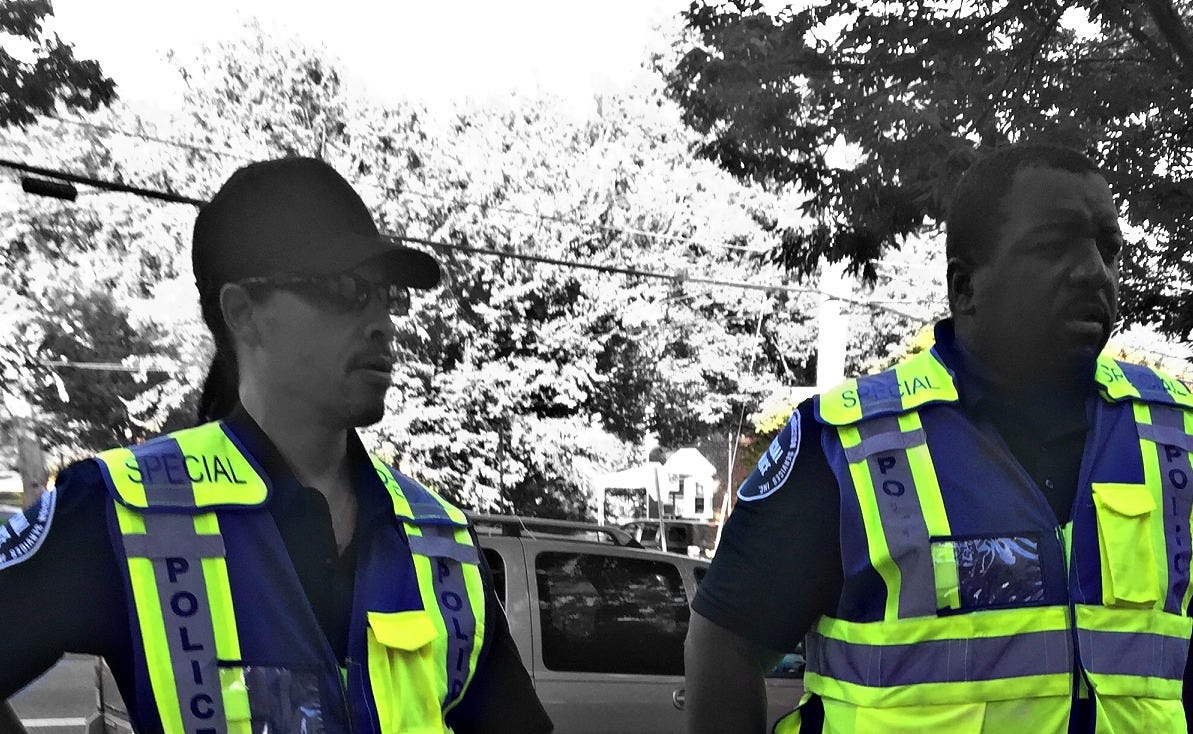
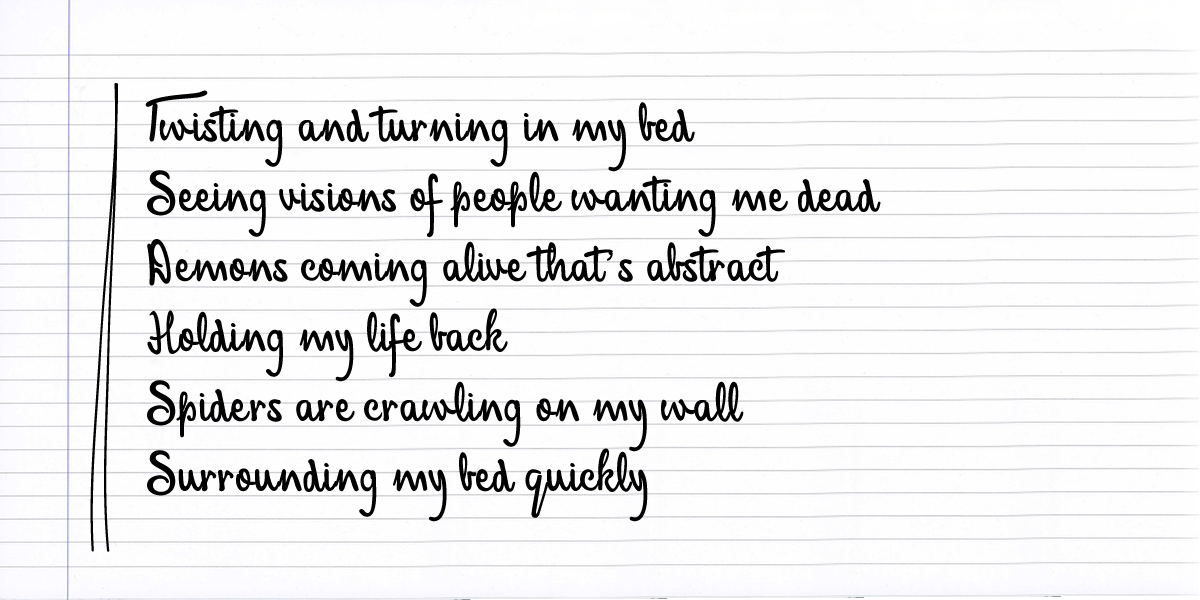
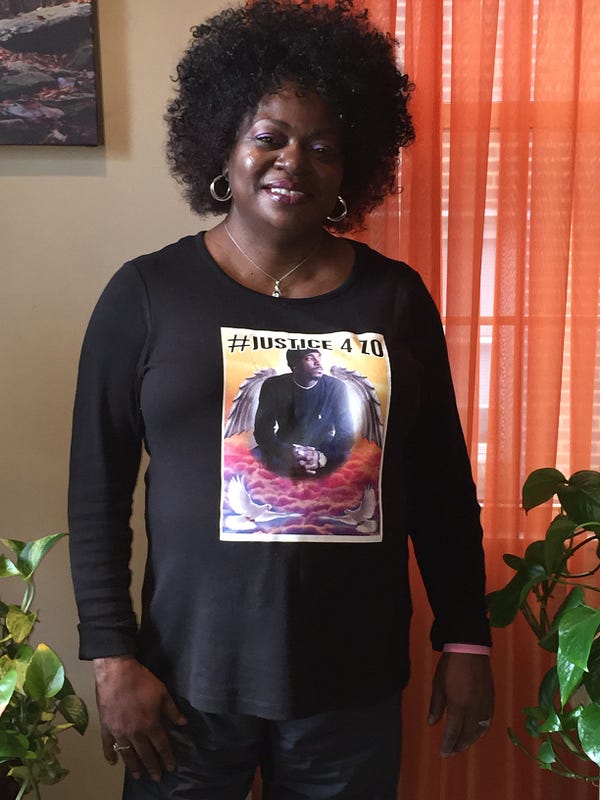
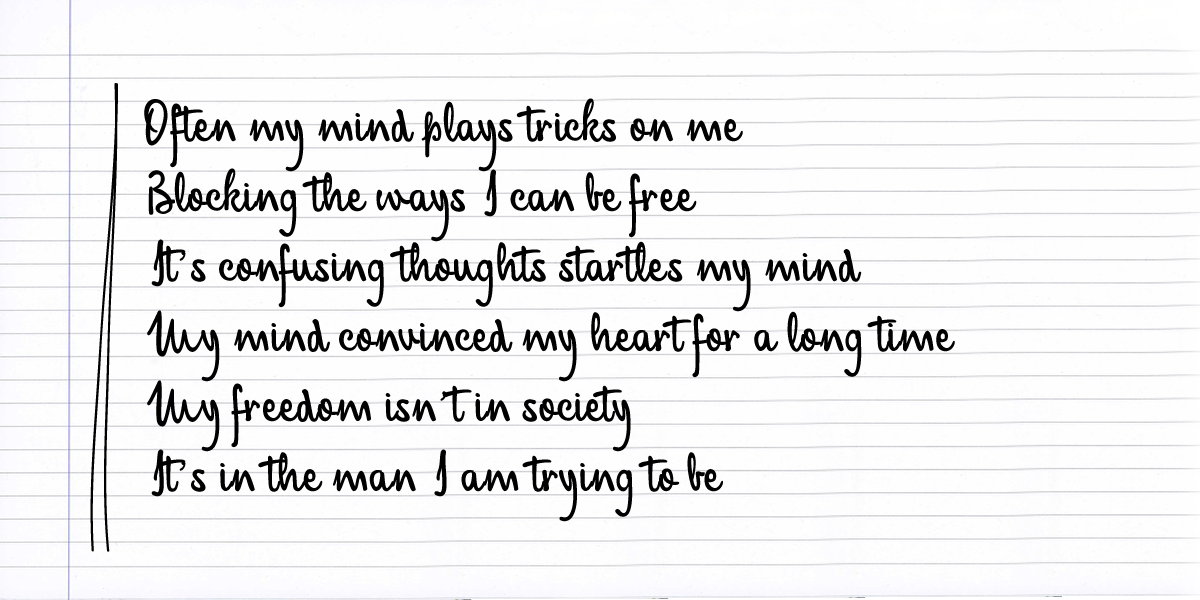

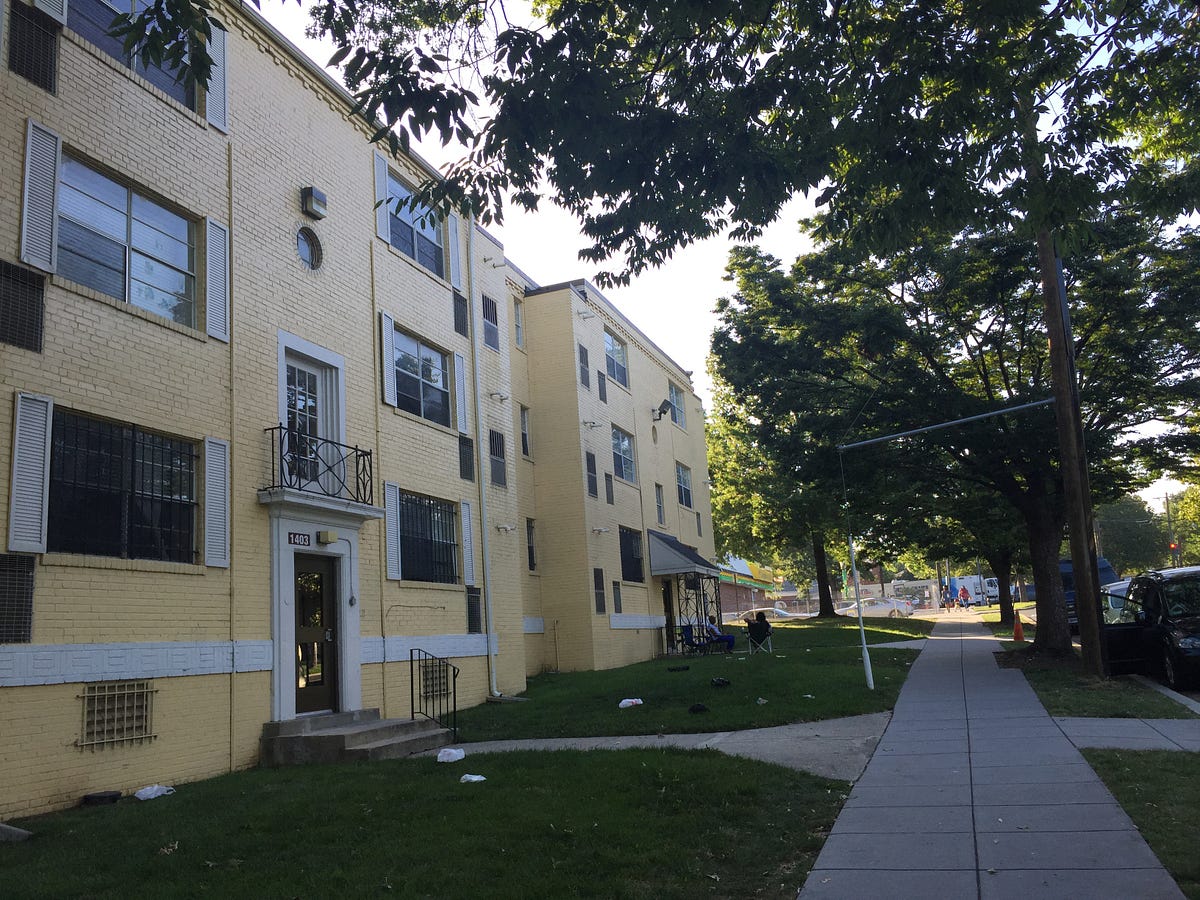
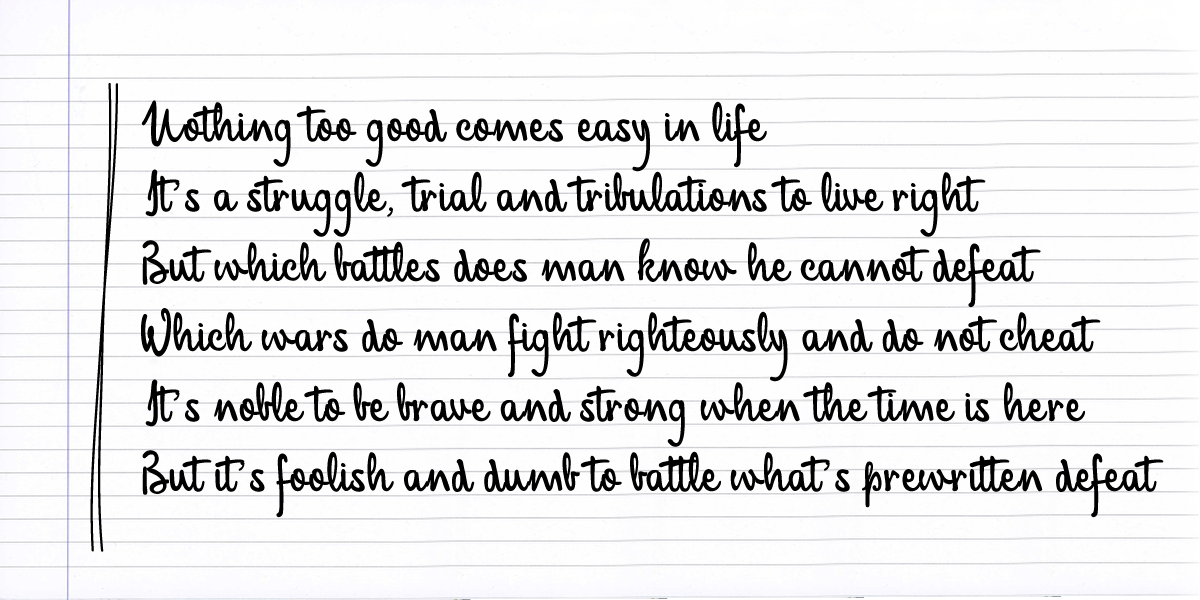
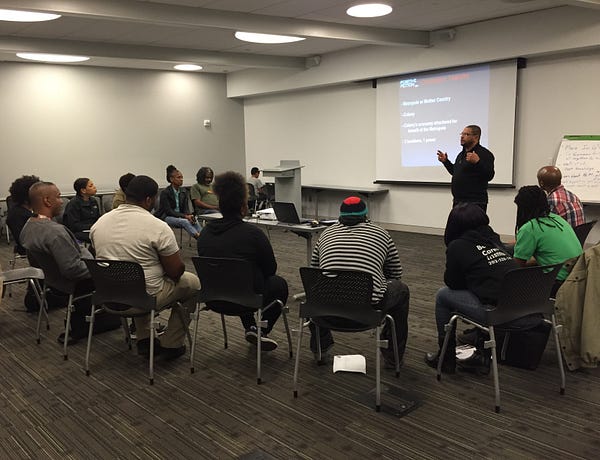
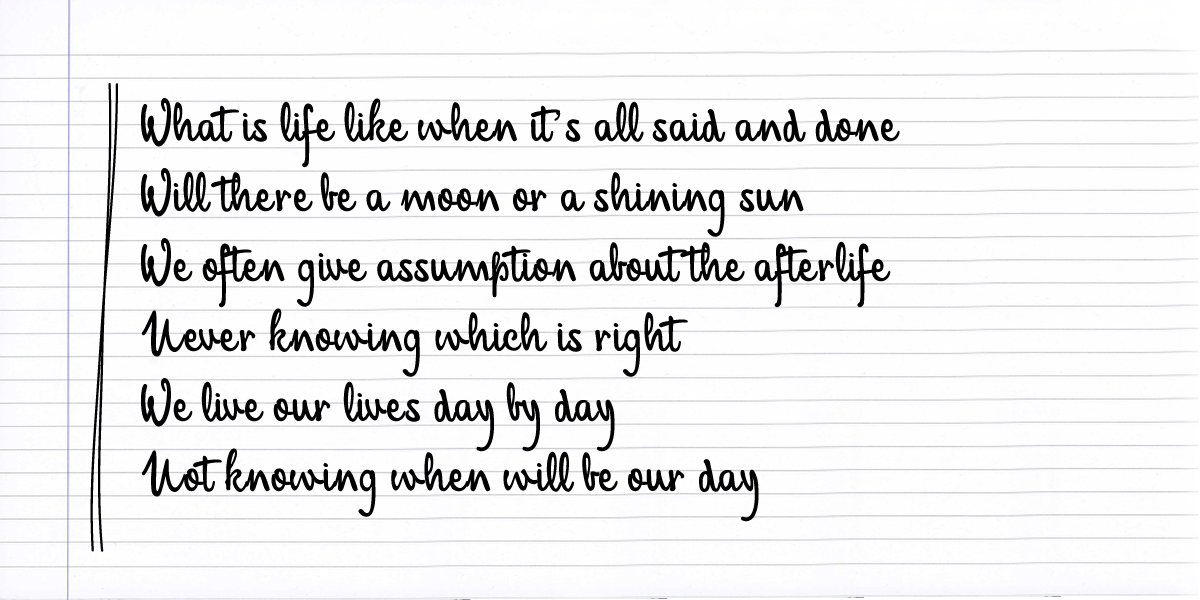
No comments:
Post a Comment